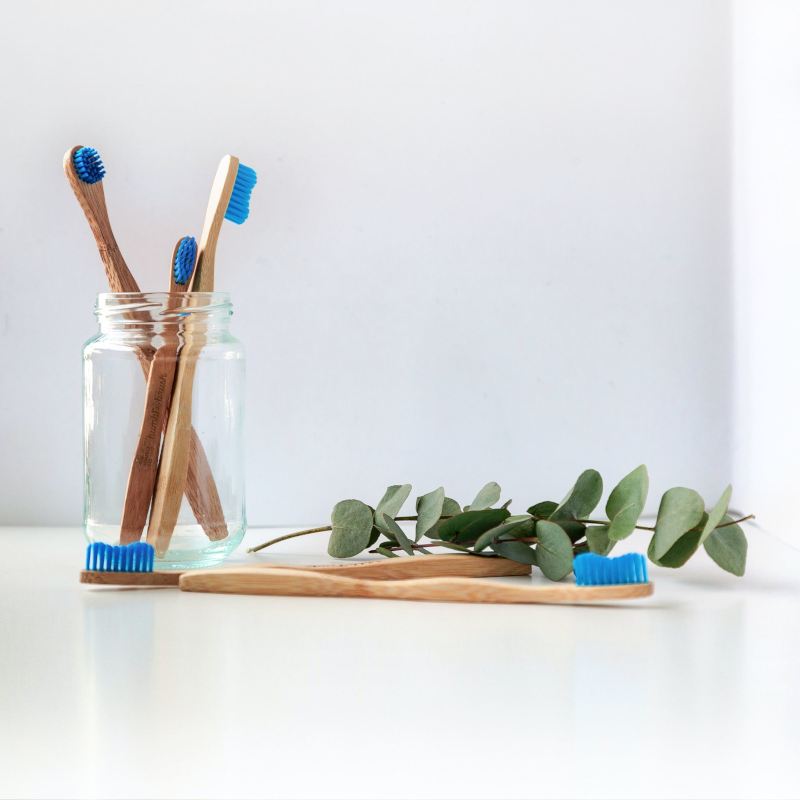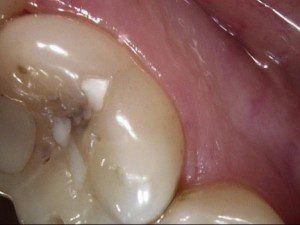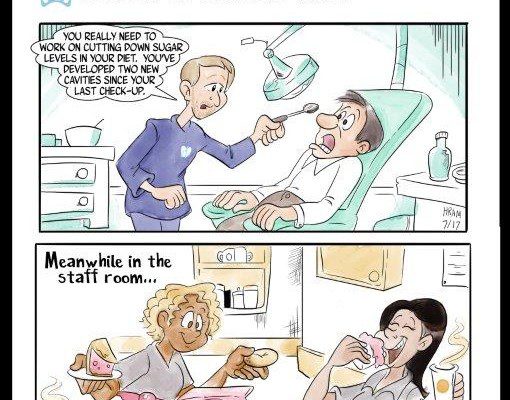
A Discussion of Fissure Sealants: Possible shortcomings of the current approach
Fissure Sealants are resin based sealers that are commonly applied to the fissures and pits of healthy adult teeth. They are often recommended to children as young as 6.
A recent discussion with our DOF dental student Callum North prompted a deeper dive. We found two Cochrane reviews.
Cochrane Review 2017, Resin‐based sealant versus no sealant: Resin‐based sealants applied to occlusal surfaces of permanent molars reduced caries when compared to no sealant. The incidence of caries at 24 months ranged from 16% to 70% in the control groups of the studies we included, corresponding to absolute reductions in caries risk of between 11% and 51% (moderate‐quality evidence). We found similar results at follow‐up of up to 48 months. Sealants were effective at follow‐up of longer than four years, but this is less certain because of the limited quantity and quality of evidence. Information on adverse effects was limited but none occurred where this was reported. The effectiveness of glass ionomer sealant and the relative effectiveness of different types of sealants has yet to be established.
Cochrane Review 2016, Fissure sealant versus Fluoride Varnish: Currently, scarce and clinically diverse data are available on the comparison of sealants and fluoride varnish applications; therefore, it is not possible to draw clear conclusions about possible differences in effectiveness for preventing or controlling dental caries on occlusal surfaces of permanent molars. The conclusions of this updated review remain the same as those of the last update (in 2010). We found some low‐quality evidence suggesting the superiority of resin‐based fissure sealants over fluoride varnish applications for preventing occlusal caries in permanent molars, and other low‐quality evidence for benefits of resin‐based sealant and fluoride varnish over fluoride varnish alone. Regarding glass ionomer sealant versus fluoride varnish comparison-ns, we assessed the quality of the evidence as very low and could draw no conclusions.
My Main concerns with Fissure Sealants:
- There is no long term (greater than 4 years) evidence on the benefit of fissure sealants. 10, 20, 30-year outcomes are completely unknown but incredibly relevant.
- Studies of Iatrogenic effects (harm caused by) fissure sealants are limited. Placing them in high decay risk cases may be valid in the short term, but the ill effects of placing them on healthy and unhealthy teeth are not known for the long term.
- There could be an industry bias of placing them as it is a billable item. I’ve worked at some clinics in the past that pushed fissure sealants to meet targets (KPIs).
- Fissure sealants can impede cleaning of the tooth surface when the sealant starts to break down. It may also lessen the delivery of fluoride varnish and tooth mousse (CPP-ACP) to the partially covered surface.
- There simply isn’t enough evidence to know how long these sealants last, and in my experience failing fissure sealants increase decay risk. Cleaning underneath partially failed sealants are impossible.

(Dental Caries under a failing sealant)
The key difference between sealants and other restorative works (filling, crowns, root canals etc) is sealants are indicated for non-diseased teeth as a “preventative” measure. Fillings, crowns, root canals are only indicated for diseased teeth that will surely worsen if left alone. Since fissure sealants are often placed on healthy teeth there needs to be irrefutable evidence of long-term benefit (with no viable alternative) and long-term safety. Neither of these are satisfied as topical fluoride varnish, tooth mousse (CPP-ACP) offer an alternative and the long-term safety of sealants is far from certain. Also, the burden of evidence lies with the clinicians that opt to treat, not the ones that opt to do nothing.
My Advice: If offered say no to fissure sealants. Instead, have a good diet, clean well, use fluoride varnish and tooth mousse (CPP-ACP).

Dr Max Ganhewa
Dentist
BDS Otago, NZ
Registered with AHPRA, Member of the Australian Dental Association, Victorian Dental Association, and Australian Endodontic Society, Invisalign certified,

